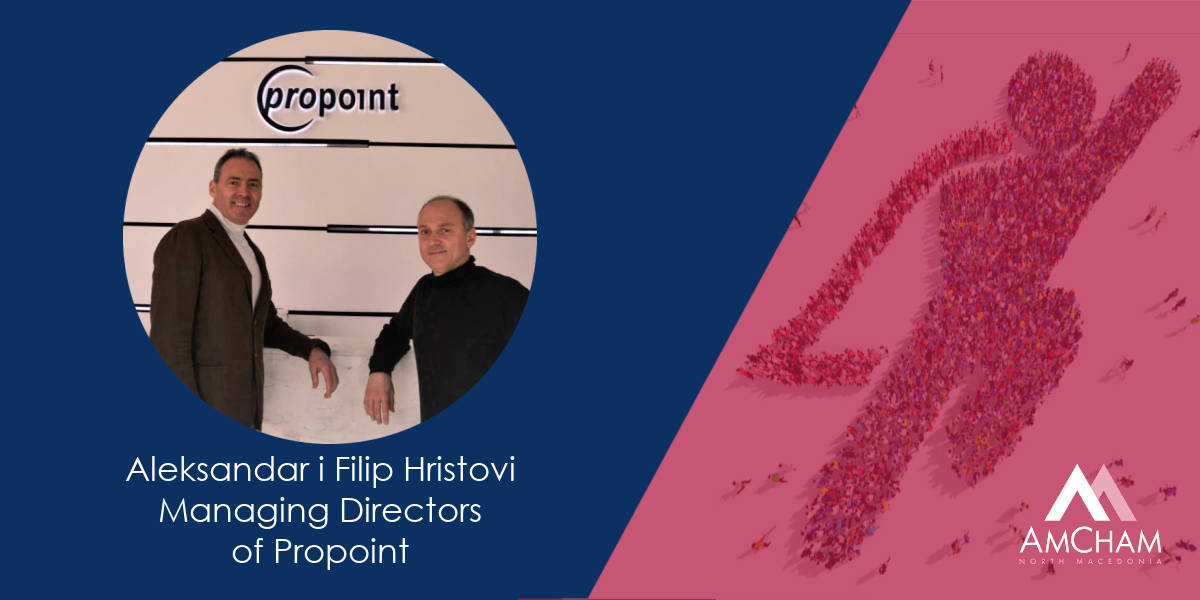*The interview in Macedonian language, published by Faktor can be found at the bottom of this page.
From plan to action! In a manner of 3 years, the printing house Propoint managed to transform its business model and become completely green. This small, but dynamic company has implemented a 100% green strategy that contributed to being different and agile in times of uncertainty.
The ability for effective and efficient implementation of the decision to work in accordance with a completely green strategy is an art that integrates economic, social and environmental dimensions, said Aleksandar and Filip Hristovi, Propoint’s founders. According to them, the quality’s superiority allows competitive advantage, but continuous investing is necessary including monitoring global trends to maintain a high position in the market. By replacing the traditional operations with economically viable, clean-green operations, Propoint has managed to produce around 500mw electricity annually from solar panels. By doing so, Propoint has reduced its yearly carbon dioxide emissions by around 470 tons. This is especially important in times full of social, economic, and energy uncertainty.
The transformation of solar into electric energy, including every other investment, denotes accepting a certain risk, but it also allows a higher level of agility. Proactivity and visionary ideas for the accomplishment of this self-sustainable working concept have directed Propoint’s focus on social responsibility and care for future generations. In turn, this has set it apart from the competition and was seen as stable by its business partners.
More details for this transformation are shared by the brothers Hristovi, who have revealed their experiences with us.
Despite Propoint’s categorization as a medium-sized enterprise, it has successfully completed a single chapter that added a dimension of self-sustainability in its operations. Investment in implementing a comprehensive, environmentally friendly solution in the operations of a single company is considered to be a major, and for some, a brave decision. This decision, which is a win-win solution, signals market repositioning and, as a result, the creation of a new strategy. How did Propoint manage to complete this process and directed its operations toward the accomplishment of this idea?
Propoint: Self-sustainability has been a very popular topic recently, and it has become even more popular as a result of all of the changes and challenges the world is facing with growing electricity rates and its availability. We had been thinking for a long time of possible ways to preserve nature, so we decided to start with things that were dependent on us and our business.
Wanting to grow into a green company, we decided on a straight-line approach, that is, implementing this idea in all segments of our operation – from using solar energy to produce electricity to integrating electric vehicles for product delivery. The motivation and the desire to improve the work process and the working conditions, at a given moment, imposed the necessity of changes and new types of investment. The greening experiences of numerous foreign companies that are intensive consumers of energy testify to numerous benefits and reduction of operating costs even by 50 percent.
For a single company to become completely green, apart from motive and desire, it needs a financial investment that depends directly on the size of the company i.e. it is proportionate. If the company spends less on electric energy, the investment is smaller and vice versa. If the company is bigger, it means bigger electricity spending and consequently it uses a bigger solar panel system. Therefore, everything is a choice and this type of conceptual change in the company’s operations depends directly on the company’s needs and readiness to invest in the future.
In all of the phases of accomplishing this strategy, we were trying to keep the 100% green concept and to achieve an even greater self-sustainability percentage. Like in any other business, our long-term plans and expectations through this investment have been to cut the operative costs and the complete change to allow us a competitive advantage, which basically we managed to achieve.
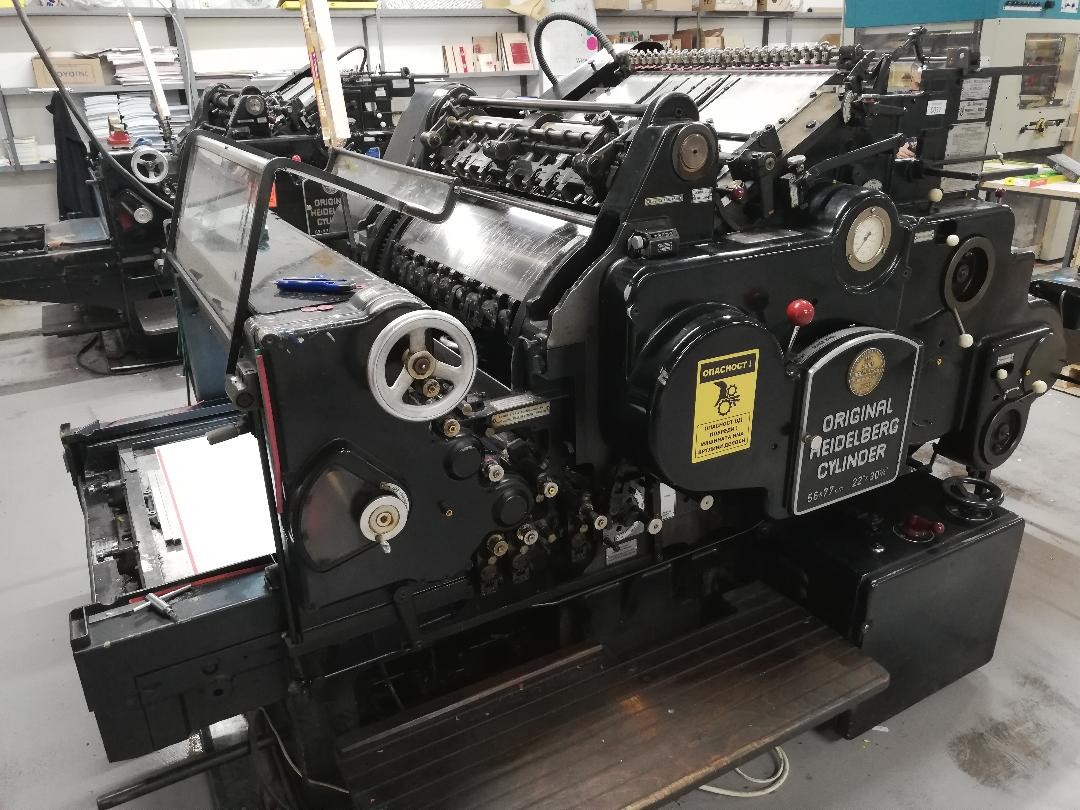
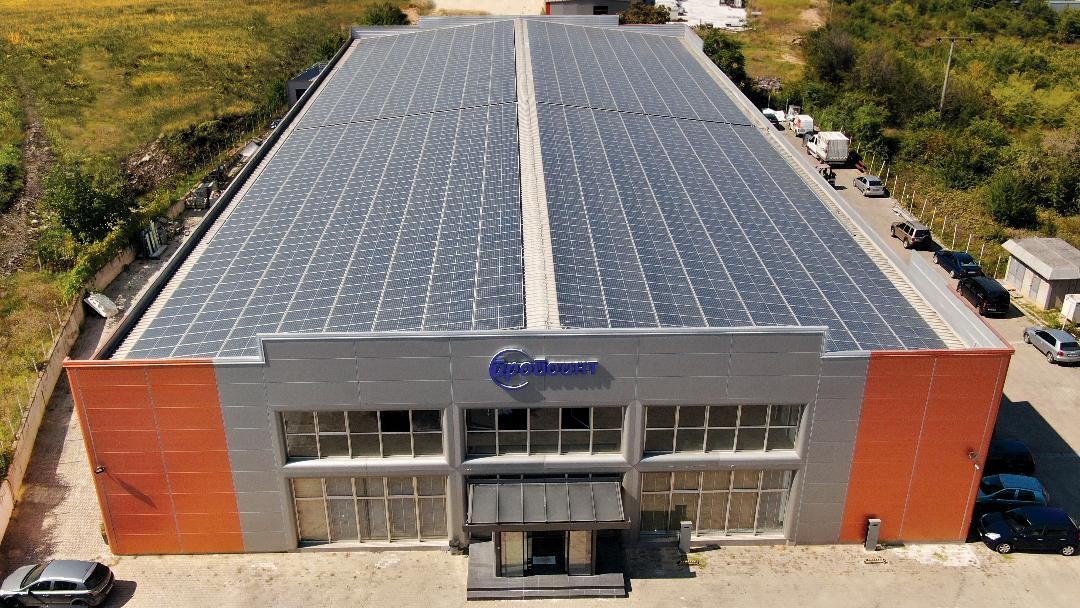
The change in the working strategy means changes in many aspects of our work. For such a decision to be made, it is important for the manager to have all the necessary information that will ease the decision-making process. When did you realize it was time for such crucial change? Was the company’s liquidity jeopardized as a result of this decision?
Propoint: The idea of a company’s efficiency improvement through the smart use of natural resources is fantastic, especially the idea that one can achieve superior efficiency on the account of causing smaller environmental damage.
It is true that such investment requires creativity, especially during an economically uncertain period, but it is also necessary to consider the timing, the regulatory environment, and the impact of technology on the quality of life. The company’s liquidity was never jeopardized because we approached the implementation objectively, patiently, and calmly. The investment cycle was not completed in the anticipated timeframe, but we experienced a little delay in our regular equipment investments.
Regardless, in our situation, it turned out that we had chosen the proper time to implement this concept, which demonstrated that the advantages outweighed the risks. The initial benefit was immediately visible and referred to competitive advantages, but our greatest gain was that Propoint achieved a level of self-sustainability during times of crisis because these sorts of enterprises are more resilient to unexpected rapid changes such as electricity pricing and availability today.
Given that you are pioneers in the implementation of this green office concept, you have undoubtedly encountered obstacles in the acquisition of necessary materials for the uninterrupted operation of solar panels, electric cargo vehicles, and a variety of other equipment. What have been your experiences and recommendations for overcoming similar challenges? What was the battle that you won and has made you proud?
Propoint: When we work to increase energy efficiency or improve productivity by utilizing certain resources, we save, increase profitability and strengthen competitiveness. But the fact is that in our country the synchronization of certain processes is difficult, which is one of the reasons why some companies are still delaying their involvement in the so-called green eco system. The excuse is usually that the investment is large and cannot be fully planned, however this is not the case. The biggest challenge we faced was the lengthy administrative procedures required to obtain certain permits that would allow the work to run uninterrupted. It was clear to us that the existence of an administrative burden was something that could not be avoided in this process. However, if administrative procedures are simplified, enterprises will be able to transition more easily into self-sustaining ones.
The first challenge was incorporating the eco dimension into the strategy. We realized that it is most important to have vision and persistence when implementing a solution that is creative, and above all pioneering. On the other hand, the biggest challenge we faced in the whole process was the procurement of 100 percent electric delivery vehicles, which were not available in our market, and had to be obtained from abroad. Namely, the production of electric delivery vehicles is not as large as those that run on fossil fuels, and they are not immediately available, so we have been waiting for them for a long time.
Adopting this concept means simultaneous improvement of different aspects of the work, but this requires available options and conditions in the local market. In this scenario, despite the fact that we purchased the electric vehicles from abroad, there is no opportunity for their maintenance and servicing in our country. If this is made possible in our market, more efficiency and a faster adoption of this concept will be accomplished because it will assist the removal of these barriers and inspire businesses to begin their “greening.”. With this step, we have finished the process of “greening” our production and product delivery by employing 100 percent green energy by the end of this step. “Propoint” is not only the country’s first green printing house, but also the country’s first “100% green enterprise.”
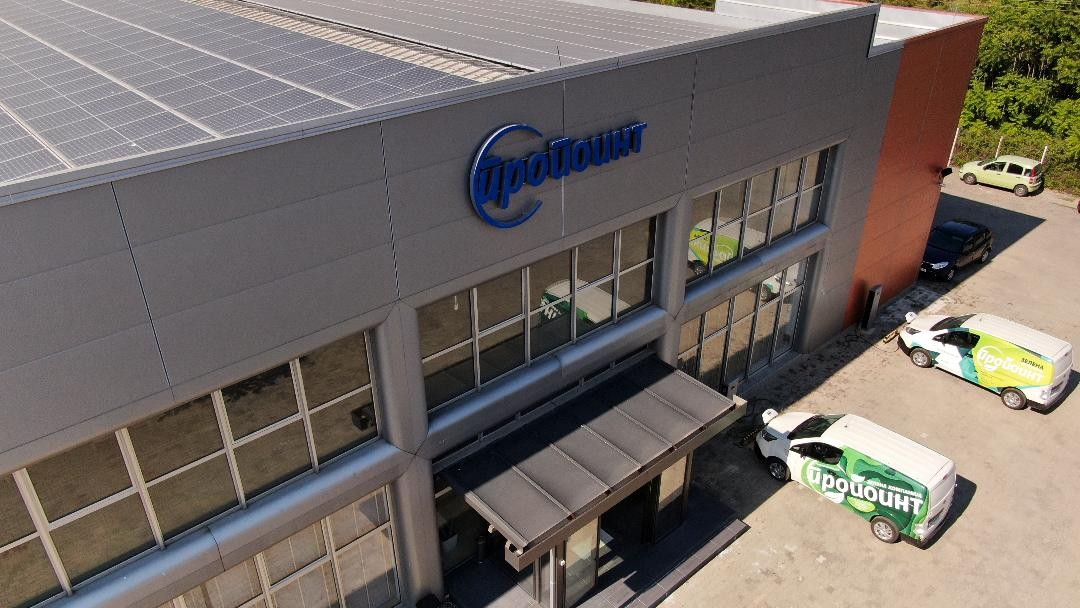
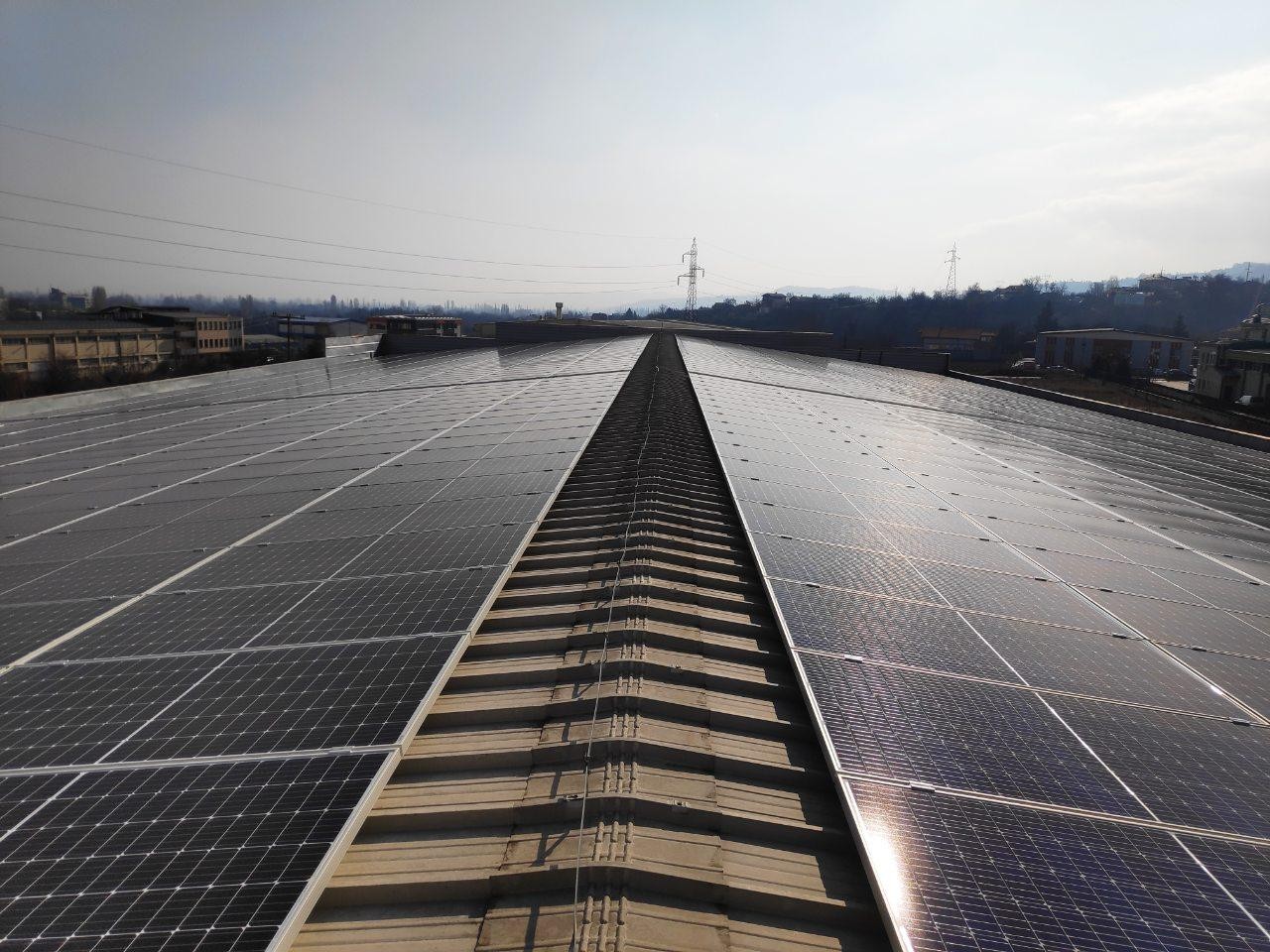
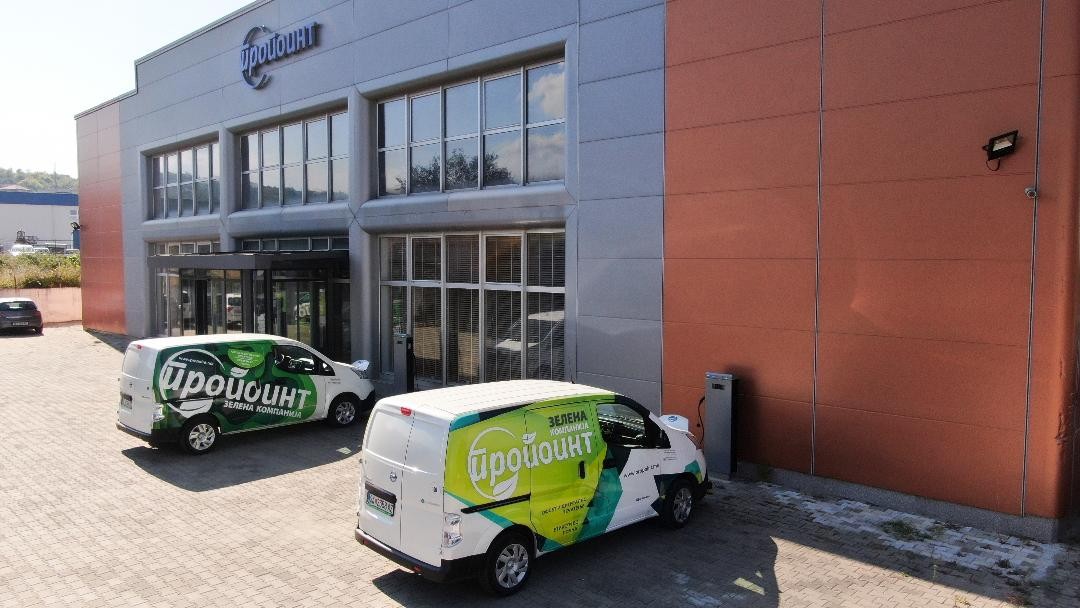
The corporate culture also reflects the operations and, ultimately, the accomplishment of the overall organizational strategy. By implementing a green strategy, the employees were most likely prepared for what they would face. Are there any changes in employees’ habits and relations, and have you encountered any resistance to change?
Propoint: It takes time to move from an idea to its realization. Because proper planning allowed us to have the necessary time to train Propoint’s employees on the meaning of self-sustainability and potential benefits, because a strong company can only be sustainable if it integrates the benefits of the living environment as well as the benefits of economic and social aspects.
Certainly, there are changes within the organization; we started with great enthusiasm about something that was previously unknown, and that enthusiasm was carried on and welcomed by the employees. Today they are happy that certain processes have been made easier for them, but also proud that they are employed in a company that is green and cares for future generations. Despite the great challenge of integrating this type of “environmental excellence” into all aspects of operations, we are proud to have managed to raise awareness of the importance of the environment and to successfully implement an idea that at one point was only a distant dream.

